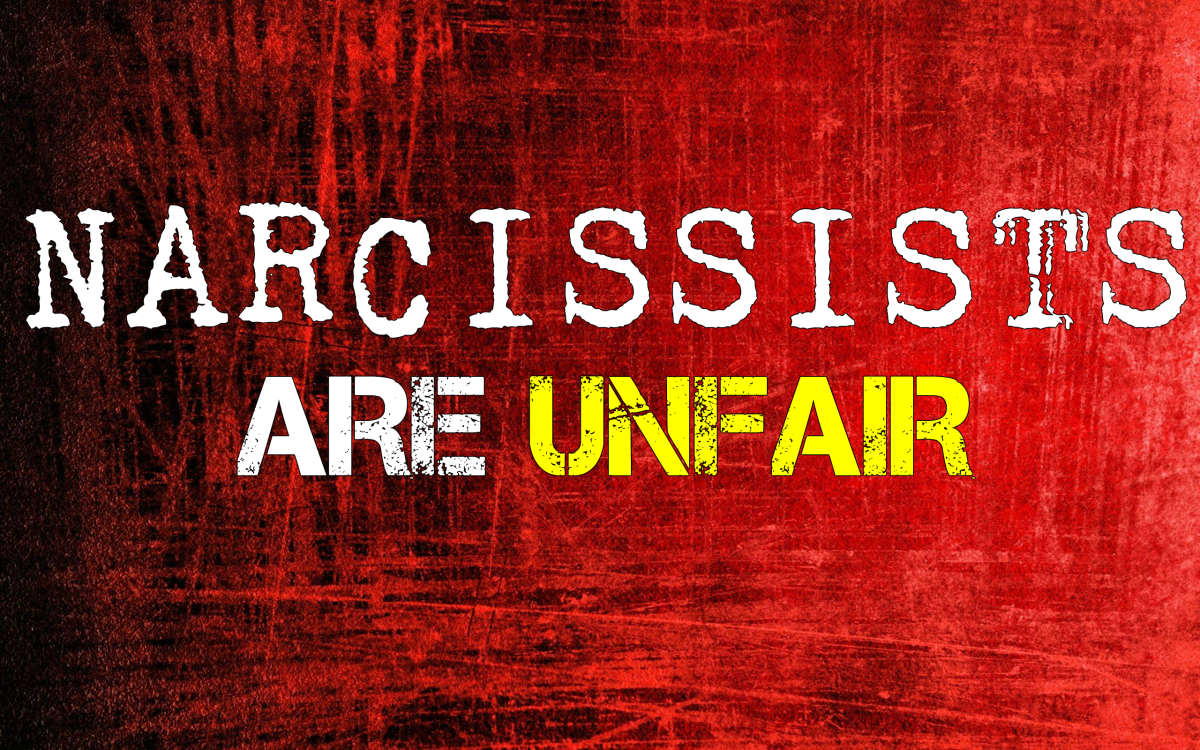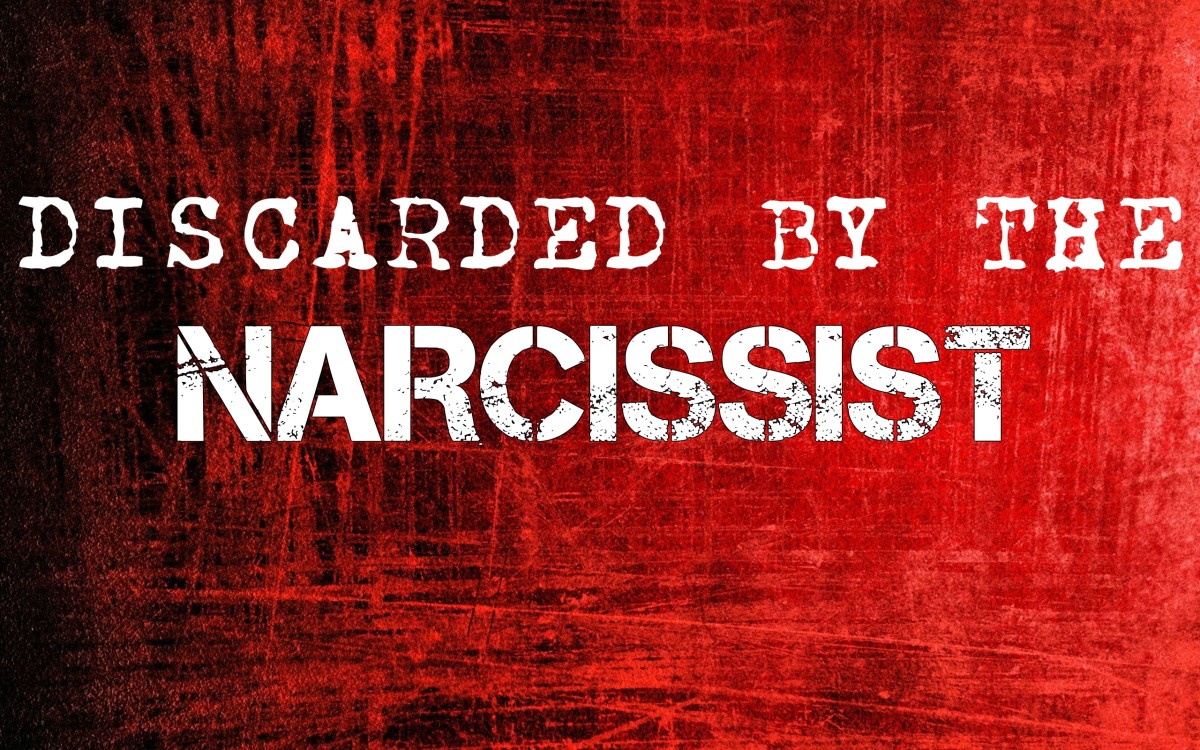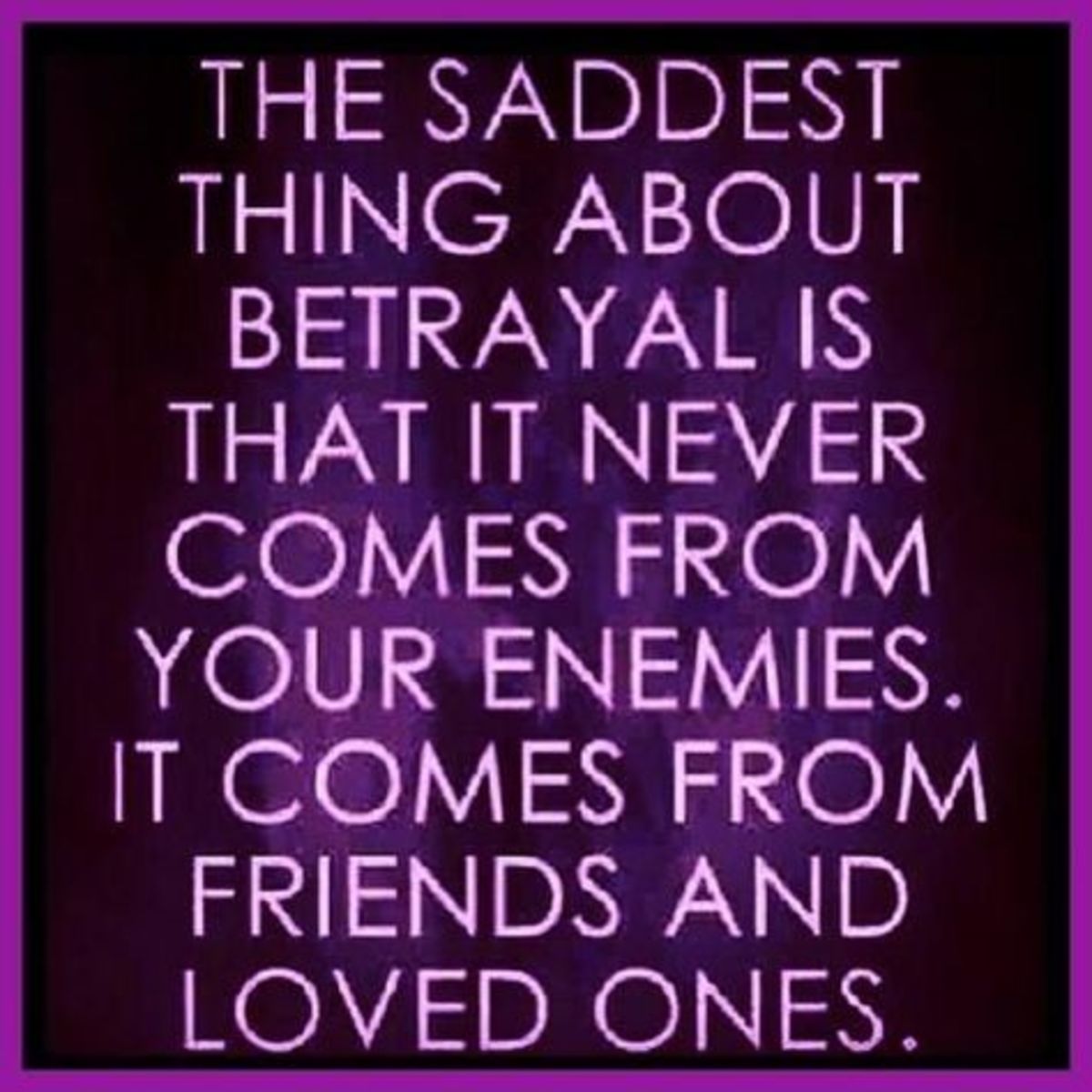Who's to Blame for Narcissistic Abuse?
Who's to Blame?
Malignant narcissists like to target individuals known as "empaths." These two types of people have a magnetic attraction for one another.
Those who care deeply for their family and friends, otherwise known as empaths, like to help others. If someone is suffering, they try to find a way to alleviate the agony. They do this almost without thinking, often going far out of their way, because that's what they like to do.
Narcissists take full advantage of these traits. Keenly aware of an empath in their midst, they lay it on thick, at least in the beginning. They shower their intended victim with compliments. They are readily available. In fact, they seem to have so much time to kill that you start to wonder what they did before they met you. Actually, this is a big red flag waving in your face.
The person you are now getting to know may have blasted through a series of bridges before hooking up with you. That's why you're now the focus of their lives.
It's this introductory period with a narcissist that targets look back upon with fondness. This is when everything seems too good to be true. That's because it is. The whirlwind relationship is only an illusion. When it shatters, some terrible truths will reveal themselves.

An Intricate Dance
The dance between a narcissist and an empath is an intricate one. There is a lot of truth in the saying that "it takes two to tango." No one will argue that a dangerous emotional predator caused most of the trouble. He or she went out of their way to hurt and humiliate you. Lies were spread and you became a social outcast. Otherwise "nice" people mysteriously sided with the abuser.
Was there anything you could have done to have prevented this? Did you do anything to invite this situation? Was there anything you could have done differently?
The answers to these questions may surprise you, because, when malignant narcissism rears it's ugly head, the situation becomes extremely complicated.
A narcissist will want you to believe that it's all your fault. He or she will even use a variety of "gaslighting" techniques in an attempt to distort your recollection of events. But this is a ploy you won't want to fall for.
However, if you look back upon the situation, without accepting full blame, you're likely to see there are some things you could have done differently. The blessing in this situation is that you can learn some lifelong lessons, so you never stumble into a similar trap.

Dealing with Crazy Makers
Not Having a Narc Filter
Please understand I am not a trained and licensed mental health professional. My education about malignant narcissism comes from some eye-opening first-hand experiences. Also, one of my relatives is a licensed marriage and family therapist. She and I have had long conversations about malignant personality disorders, which she believes are extremely prevalent in this disordered world.
Here is how she explained it to me. People who grow up in a highly dysfunctional family do not develop a "filter" that protects them from emotional predators.
People raised in a more mentally intact family, on the other hand, have little tolerance for outlandish actions. But someone who didn't have family stability may not recognize glaring warning signs. Actually, they might even find a deep-rooted personality disorder familiar and comforting. So they may be drawn toward someone with strange behavior.
Sometimes, the targeted person was the scapegoat of the family. This is a role they can easily slide into again, in another setting.
So, when trying to analyze what happened, from the perspective of hindsight, it helps to think about your family background. At least this is what my relative, the therapist, tells me.
Insist on Being Treated Well
In my own life, one of my stumbling blocks was that I didn't always insist on being treated well. This is one area where I'm learning to make some changes. And it's also one area where I should have established better boundaries with the narcissist in my life. This is something I also need to acknowledge and take responsibility for, in order that the pattern isn't repeated.
Although I don't blame myself for what transpired, because emotional predators are so clever, I definitely needed to set much stronger boundaries, and to not have excused the sometimes rude, inappropriate comments I heard, under the guise of being "helpful." I now know this was thinly veiled hostility and I never should have put up with it, nor should I have shrugged it off as, "That's just how she is."
Good friends don't do this. They care about your feelings and they want to spare them, because they value you, as well as your friendship.

Trusting Too Soon
Before learning more about malignant narcissism, I used to automatically trust everyone. However, this is not realistic, especially in today's world. I'm not sure we ever could extend our trust to everyone, but something in our present culture is so off that some of us, myself included, believe we now need to be more guarded, at least until we get to know people better.
We should never share secrets, or even personal information, until a friend has proven themselves trustworthy, a person of integrity. This is something we discern over time. We need to be especially wary of "instant friendships," as healthy relationships evolve at a slower, more natural pace.
Information in the hands of a malignant narcissist is like dynamite. They'll hold on to it until they're ready strike a match. Then, there will be a big explosion and the rubble will fall in your direction. Any personal information in the hands of an emotional predator is too much. But a secret will spark a huge conflagration.
Learning the signs of malignant narcissism can help protect you from becoming their next victim. However, this method is far from foolproof. That's because some disordered personalities have what's known as "covert narcissism." This means they cover their emotional deficiencies so well that they're among the last people anyone, including a trained professionals, would suspect of having such a serious moral disorder.
When to Run in the Other Direction
Backbiting
| Repeated Lies
| Broken Promises
| Outbursts of Anger
|
|---|---|---|---|
Incessant gossip about others is a very bad sign.
| Even one lie is too many. Someone who lies repeatedly can't be trusted.
| Morally disordered people do not follow through on their commitments.
| People with severe personality disorders cannot control their impulses, or manage their anger.
|
Your Role in the Problem
No one wants to be a target of a deranged personality, and you certainly didn't intentionally enter into this type of emotional bondage. But the narcissist, somehow, viewed you as a sitting duck.
In order to prevent another dangerous person from entering your life, it's good to take a look at yourself, in order to understand what you need to strengthen.
The good news is that the experts tell us that once we bounce back from narcissistic abuse, and insist that future relationships have more give and take, we then begin to attract people with a lot more integrity. From personal experience, I believe this is true.
It's been several years since the last narcissist left my life. In the meantime, I've met some wonderful people. I've also met a couple of folks I wondered about, as I spotted some disturbing traits early on, such as non-stop talking, becoming easily offended and a tendency to gossip. The amazing thing is that each of them already seemed to know my guard was up. Both of them kept their distance, without me having to do anything to keep them away.
How did they know I knew? Morally disordered people have an uncanny ability to size us up. Highly manipulative, they are very adept at "reading" others.
Making the Necessary Changes
No one needs a narcissist in their lives, especially when this person is not a family member. The very fact that this is a chosen relationship means you can choose to set them free. Although you may initially miss them, very soon these feelings will be replaced with happiness and relief. With a narcissist in your life, there is never any peace.
You might even miss the person whom caused you so much distress. But this feeling will pass, sooner than you imagined. Actually, it's not really the person you miss so much as it is the person you once thought they were, which, in reality, never existed in the first place.
For Additional Reading
- Playing with a Narcissist? - Don't Expect to Win
This article explains why you will never win with a malignant narcissist. - Why Are Women So Mean to One Another?
A discussion about female malignant narcissists. - How to Handle Church Bullies
A reflection on malignant narcissism from a spiritual direction.
Disclosure
I am a participant in the Amazon Services LLC Associates Program, an affiliate advertising program designed to provide a means for sites to earn advertising fees by advertising and linking to amazon.com.












